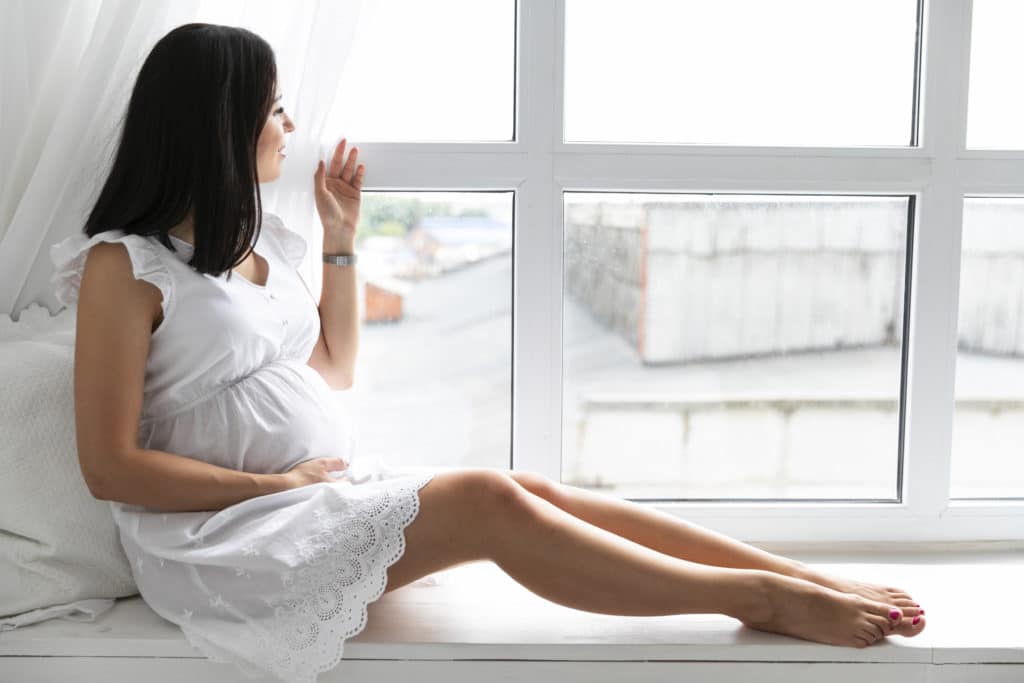Varicose veins is one of the most common forms of vein disease and is pretty recognizable even to those outside of the medical community. Large, rope-like veins often characterize the appearance of varicose veins, especially as they develop across the legs. Varicose veins impact the lower extremities most often but can be found on other parts of the body. These parts can include your face, torso, and pubic region. Vulvar varicose veins can be found in the pelvic region and are not commonly reported. In fact, varicose veins in this area are typically the result of pregnancy. Fortunately, vulvar varicose veins are usually not due to any significant medical condition and will often disappear after the individual has given birth. A small portion of post-pregnancy women will still have vulvar varicose veins post-pregnancy, the good news is that there is a varicose vein treatment like sclerotherapy to treat this.
The Causes of Vulvar Varicose Veins and More
Varicose veins develop when blood flow is inhibited in the body, often in the legs. Over time, blood flow can slow due to a variety of factors. These factors include inactivity, obesity, genetics, and more. Being overweight can place additional stress on your veins, causing issues. These symptoms are for regular varicose veins and differ greatly from vulvar varicose veins. The development of vulvar varicose veins is directly related to having additional blood flow around the body. A change in hormones is also directly related to vulvar varicose veins. Having vulvar varicose veins while pregnant can impact your mobility but unfortunately will not be treated by your primary physician.
Preventing Vulvar Varicose Veins
With regular varicose veins, there are a few suggestions on how you can prevent them. This includes maintaining an active lifestyle, eating well, stay mobile during frequent periods of inactivity, and wearing compression stockings if you experience blood flow problems. Many of these suggestions can easily be done but are mostly for your lower extremities. Your physician will typically provide several recommendations on how you can prevent vulvar varicose veins from forming. The first and most important suggestion will be to avoid gaining a disproportionate amount of weight during your pregnancy. It can be difficult to do this, but we recommend all pregnant women watch out for additional weight gain by controlling their diet. Your physician may also recommend that you refrain from being inactive in one position for long periods of time, such as when you are lying down or sitting. You can avoid this by frequently moving your body into different positions. Being in the same position for a long period of time can place additional pressure on your vulvar veins.
Circulation can also be restricted when laying down, especially on your side. When laying down this way it is recommended that you place a pillow under your hips. This will allow you to elevate your hips, encouraging blood flow. Even with these recommendations, you may experience discomfort and pain that can seem overwhelming over the duration of your pregnancy. You can alleviate this pain and discomfort by placing a cool compress to the area. Doing this is an amazing relief that can help reduce pain, swelling, and even overall pressure. Pregnancy can seem long especially when feeling the symptoms of vulvar varicose veins, but it is temporary! Maintain your strength and resolve knowing that vulvar varicose veins are more than likely fade after you have delivered the baby.
Post Pregnancy Varicose Vein Treatment
As mentioned, there is no treatment for vulvar varicose veins when pregnant. Women who develop this form of varicose veins need to follow the recommendations of their physicians and try their best to maintain their weight. However, not all cases of vulvar varicose veins will fade away after delivery. Yes, most will disappear, but a small portion of post pregnancy women will still have vulvar varicose veins post pregnancy. If you fall into this category, you will benefit from sclerotherapy. This treatment is the most popular and most recommended treatment. Sclerotherapy is a varicose vein treatment where scleroscant, a fluid, is injected straight into the varicose vein. This solution will collapse the impacted vein, allowing it to be absorbed into the body. Our pubic area has several veins, so blood flow will not be interrupted by collapsing one down. This type of procedure may sound painful to those unfamiliar with it. However, a topical anesthetic is used every time to ensure our patients remain comfortable from start to finish. Sclerotherapy is the best way you can find relief from vulvar varicose veins after you have experienced pregnancy.
Find Relief with the Laser Vein Center
If you are experiencing any form of varicose veins, make sure to seek out the Laser Vein Center for help. Our process starts with a free consultation to walk you through the recommended procedure for your condition. Call today and prepare for relief from varicose veins after your pregnancy.

